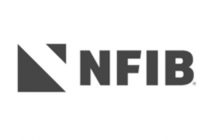(Rebeckah Berry (left), Grants and Metrics manager at the Central Oregon Health Council and DeeDee Johnson, director of Family Services at Bend-Redmond Habitat for Humanity | Photo Courtesy of Bend-Redmond Habitat for Humanity)
Bend-Redmond Habitat for Humanity has just received a $5,000 grant from the Central Oregon Health Council to help the organization identify the barriers to homeownership for Black, Hispanic and other non-white families in the Central Oregon community. Over the next six months, the nonprofit will be partnering with an instructor at OSU-Cascades to gain a better understanding of what is driving racial disparities and to develop strategic initiatives to address them.
According to Oregon Housing & Community Services research, a person identifying as white has a 66 percent chance of becoming a homeowner. However, a person identifying as any other race has only a 30 percent chance of owning a home. This glaring divide has lifelong impacts on the economic stability of families as well as on their physical health and emotional well-being.
Benefits of homeownership include:
- Improved living conditions, including health and safety
- Higher educational attainment for children
- Increase in net family wealth
- A path out of poverty
“Bend-Redmond Habitat for Humanity is taking an important step with this project,” says Rebeckah Berry, Grants and Metrics manager at the Central Oregon Health Council. ”Creating safe listening spaces where lived experiences can be gathered can provide a stronger understanding of possible solutions to increase homeownership among Black, Hispanic and races other than white in the communities of Bend and Redmond. The Central Oregon Health Council is honored to fund this vital project that is directly seeking to discover sources of inequities in our region.”
The project launches in July in partnership with Erika McCalipine, a business instructor and degree program lead at OSU-Cascades with in-depth experience addressing equity and inclusion in her courses and the local community. McCalipine’s work was recently honored with the Frances Dancy Hooks Award for building bridges across cultures, showing courage in promoting diversity and proudly “walking the talk.”
“Supporting equity in housing is a critical aspect of our mission to serve families,” explains DeeDee Johnson, Habitat’s director of Family Services. “If we are going to overcome racial disparities and create a world where everyone has a decent place to live, we have to look intentionally through the lens of diversity.”
The project scope includes working directly with the Habitat staff and the organization’s Board of Directors as well as hosting listening sessions with people of color to identify the barriers they are experiencing to accessing homeownership.
For more than 30 years, Bend-Redmond Habitat for Humanity has dedicated its programs to ensuring people of all races, faiths and backgrounds can work together for a common cause. As recently affirmed by Jonathan Reckford, CEO of Habitat for Humanity International, the nonprofit is committed “…to being actively anti-racist and to affirming, through word and action, that Black Lives Matter and that our communities and systems must further this fundamental truth.”
Bend-Redmond Habitat builds and sells 10-15 affordable homes a year, offering families mortgages affordably set at approximately 33 percent of the household income. Over a period of 12-24 months, program participants volunteer 150 hours of “sweat equity” on their home, attend homeownership education classes, pledge to maintain and repair their home and make house payments on time.





